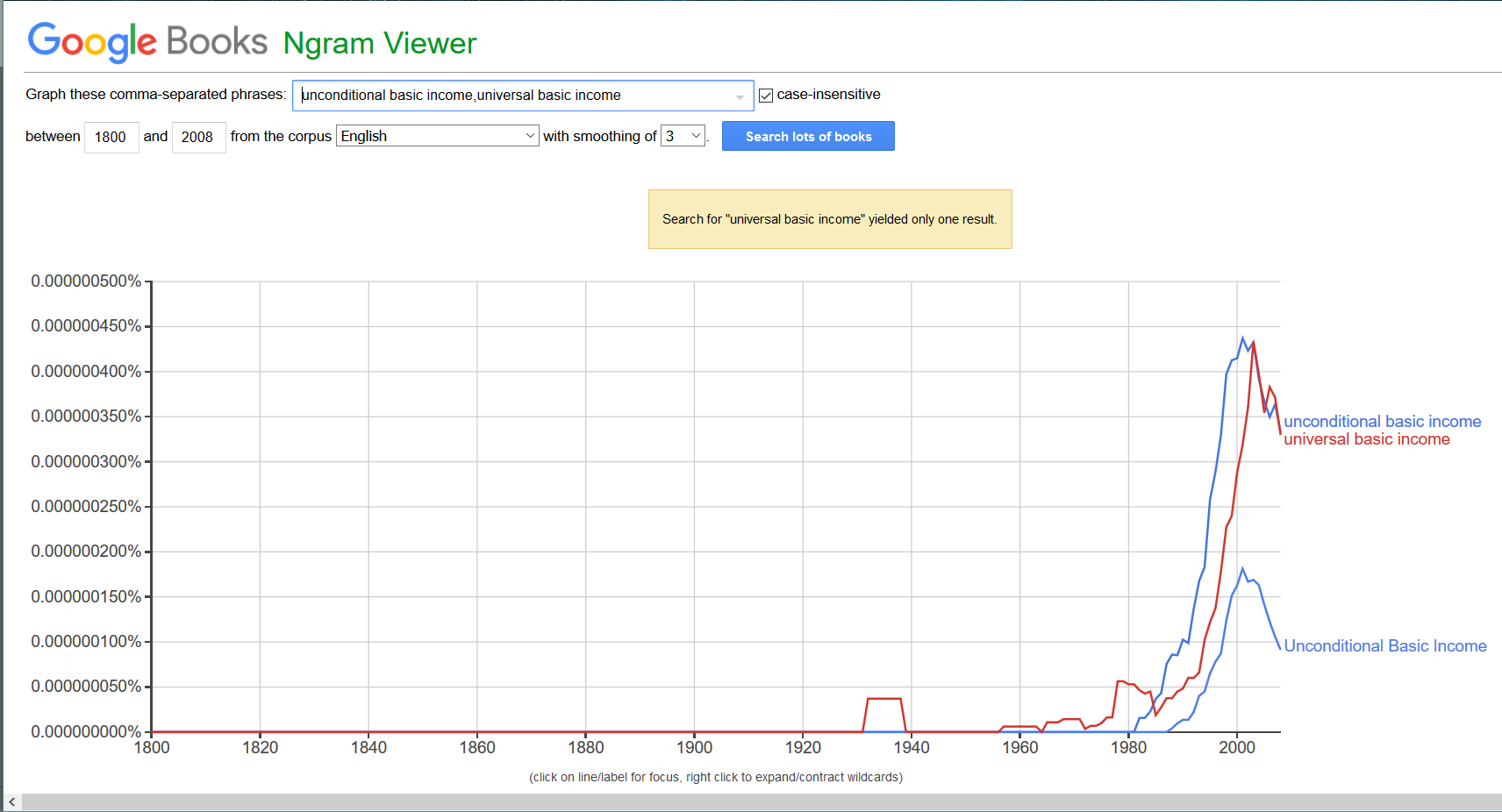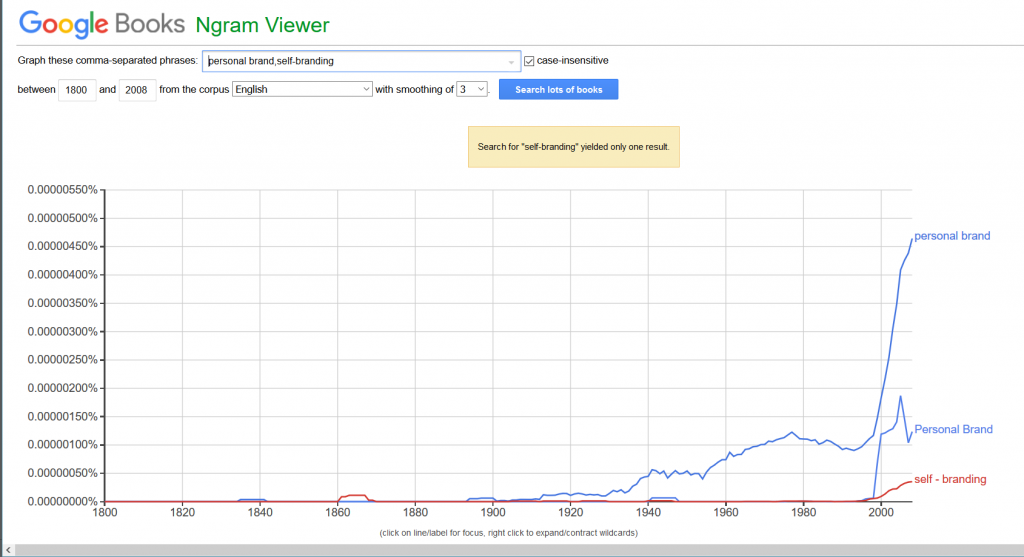Earlier this year, a committee member asked me how I envisioned the future of work and labor systems given the many kinds of increasingly distributed, digitally mediated collaboration I had been studying for my dissertation. My answer in that moment stretched toward two very different extremes—one involving publicly-funded economic support for all, the other a more individualistic system of “meritocracy.” Either our society might move toward a system of universal/unconditional basic income (UBI) in the wake of increasing automation and more sophisticated artificial intelligence systems… or… our systems of waged labor could unmoor even further from traditional corporate hierarchies, fully embrace the “all-edge,” project-based arrangements that Spinuzzi (2015) describes, and leave us all to fend for ourselves in a neoliberal capitalist free-for-all. This blog post is a meditation on these two hypothetical future scenarios, combined with review of some recent scholarship and commentary relating to our rapidly changing digital workscapes.
Two hypothetical (or not-so-hypothetical?) futures
Perhaps, in the not-too-distant future, the cultural imperative and material necessity for humans to find paid employment would fade, displaced by equitable, sustainable, government-mandated stipends. Unlike current systems of waged labor, as Weeks (2011) stresses, UBI would not be tied to employment status, relationship status, or age. With such an economic foundation, we could theoretically work on any projects we felt called towards, regardless of whether they would lead to any monetary returns on our investments of time, energy, or other resources. Experiments in the spirit of such a future are already taking place in Scandinavian countries (Sanchez Diez, 2015; Trufleman, 2017).

On the other hand, some aspects of our current globalizing attention economy might instead intensify into a never-ending carnival of self-promotion and side-hustles. In this scenario, given so very few stable employment opportunities, everyone would have to take freelance or contract gigs, rely on generous patrons, or seek support via crowdfunding or sponsorship. Portions of this future are also already a current reality—we see dozens of fan-supported radio and podcast projects, YouTube stars raking in ad revenue, and far too many GoFundMe campaigns seeking donations to cover sky-high healthcare costs. The concept of maintaining one’s personal brand in order to use it as socioeconomic leverage is a persistent meme (Peters, 1997; Hess, 2018).

Both futures, extreme though they may be, serve as interesting thought experiments, useful for prompting important questions about the realities (digitally-mediated and otherwise) we want to be creating. Naturally, when the future arrives, it likely won’t look exactly like anything any of us may have imagined. As scholars and teachers of digital literacies, of professional communication, and of so many other relevant 21st-century practices, we know the importance of preparing ourselves and our students to intervene in shaping the kinds of mutually beneficial, socially equitable systems we want to be a part of.
Platforms of freedom or platforms of disaster?
The powerful influence of digital platforms is already of great interest to digital rhetoricians (see Edwards & Gelms, 2018). It’s only to be expected that this influence extends into our work lives. A recent Pew Research Report acknowledges the growing prevalence of digitally-enabled contract work: “24% of Americans report earning money from the digital ‘platform economy’ in the past year. The extra income they make is a luxury for some, but a necessity for others.” The report also includes a note of caution, contrasting reported benefits— “the freedom and flexibility to work at a time and place of one’s choosing or the ability to turn a hobby or pastime into a source of income” with the potentially “troubling” downsides of a future “in which workers face increased financial instability and are required to shoulder more of the burden for ensuring their own pay and benefits” (Smith, 2016). Building on this data and research of her own, Duffy (2016; 2017) further dispels the myth that digital platforms and the growing “gig economy” allow anyone to simply “do what they love” and get paid reasonably well for it. She asks, “are we entering a profoundly egalitarian era of employment—one ushered in by new technologies and the networked affordances of Facebook, Twitter, Instagram and more?” According to her research, the answer is complicated (Duffy, 2017).
Some are concerned that on top of not fully meeting our optimistic, romanticized expectations, this “new era” of work could in reality be disastrous. Reflecting on her own experiences working for and among companies like Uber, Fowler (2018) fears that the stakes for workers and employers are “high enough to alter the future of work itself, to the detriment of all but a select few.” She worries “that the gig economy will become the only economy, swallowing up entire groups of employees who hold full-time jobs, and that it will, eventually, displace us all.”
With Duffy and Fowler, I too wonder whether the future of laboring in such close collaboration with digital platforms and other emerging “smart” technologies will be a more egalitarian one, or if the same disparities we see in the world now will persist, or even continue to worsen.
Self-branding as (de)humanizing rhetoric
The originator of the personal brand as a concept presented it as an incredibly liberating one. In his 1997 article “The Brand Called You,” Peters (1997) seems to revel in what he calls “project world,” where work is broken into bite-sized pieces, “everyone has a chance to stand out,” and workers are free to develop and pursue the work they are most energized by. Looking back at Peters’ work 20 years later, Hess (2018) views these predictions with some disappointment, recognizing that despite the seductive power of personal brands, corporations still hold all the cards. We are no more empowered or autonomous than we used to be.
According to Hess (2018), “branding is a process of humanization: It imbues companies with personalities.” In other words, branding can be a shortcut to a valuable ethos and all the influence that comes with it. Adopting and managing one’s personal character as a brand, however, might be a shortcut to the opposite. As Lair, Sullivan, and Cheney (2005) point out, “the rhetoric of personal branding encourages and endorses the process of turning oneself into a product—in effect, engaging in self-commodification” (p. 319). Will the increasing normality of this self-commodification process eventually erode our trust in others’ characters, as Lair, Sullivan, and Cheney go on to speculate? If or when a practical system of universal/unconditional basic income becomes more widespread and normalized, would our tendency to think of our hypermediated, digital lives as a means of branding and self-promotion be lessened? If, instead, our ability to leverage a strong personal brand becomes our lifeline in a future dominated by economic instability, what might happen to our conceptions of self, ethos, and authenticity?
References
Duffy, Brooke Erin. (2017, June 19). The (false) promise of social media self-enterprise. Yale University Press Blog. Retrieved from http://blog.yalebooks.com/2017/06/19/the-false-promise-of-social-media-self-enterprise/
Duffy, Brooke Erin. (2016, Nov 17). We’re not all entrepreneurs: Yawning gaps in the digital “platform economy”. Points. Retrieved from https://points.datasociety.net/were-not-all-entrepreneurs-pew-data-reveals-yawning-gaps-in-platform-economy-c53decf864b0
Edwards, Dustin, & Gelms, Bridget. (2018). The rhetorics of platforms: Definitions, approaches, futures. Introduction to the Special Issue on the Rhetoric of Platforms. Present Tense: A Journal of Rhetoric in Society, 6(3). Retrieved from http://www.presenttensejournal.org/editorial/vol-6-3-special-issue-on-the-rhetoric-of-platforms/
Fowler, Susan. (2018). “What have we done?”: Silicon Valley engineers fear they’ve created a monster. Vanity Fair. Retrieved from https://www.vanityfair.com/news/2018/08/silicon-valley-engineers-fear-they-created-a-monster
Hess, Amanda. (2018, May 1). What happens when people and companies are both just ‘brands’? New York Times Magazine. Retrieved from https://www.nytimes.com/2018/05/01/magazine/what-happens-when-people-and-companies-are-both-just-brands.html
Lair, Daniel J., Sullivan, Katie, & Cheney, George. (2005). Marketization and the recasting of the professional self: The rhetoric and ethics of personal branding. Management Communication Quarterly, 18(3): 307-343.
Peters, Tom. (1997). The brand called you. Fast Company. Retrieved from https://www.fastcompany.com/28905/brand-called-you
Sanchez Diez, Maria. (2015). The Dutch “basic income” experiment is expanding across multiple cities. Quartz. Retrieved from https://qz.com/473779/several-dutch-cities-want-to-give-residents-a-no-strings-attached-basic-income/
Smith, Aaron. (2016). Gig work, online selling and home sharing. Pew Research Reports. Retrieved from http://www.pewinternet.org/2016/11/17/gig-work-online-selling-and-home-sharing/
Spinuzzi, Clay. (2015). All edge: Inside the new workplace networks. University of Chicago Press.
Trufelman, Avery. (2017). Ep 276: The Finnish experiment. 99% Invisible. Podcast retrieved from https://99percentinvisible.org/episode/the-finnish-experiment/
Weeks, Kathi. (2011). The problem with work: Feminism, Marxism, antiwork politics, and postwork imaginaries. Duke University Press.
